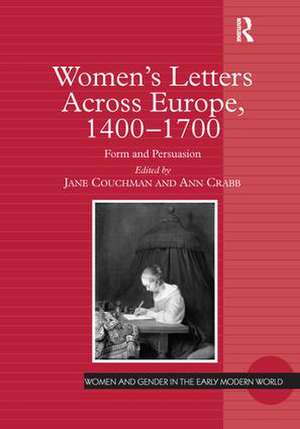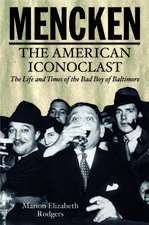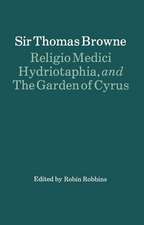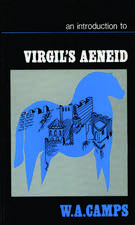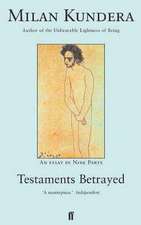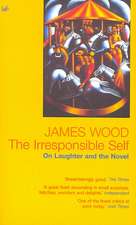Women's Letters Across Europe, 1400–1700: Form and Persuasion: Women and Gender in the Early Modern World
Autor Jane Couchman Editat de Ann Crabben Limba Engleză Paperback – 26 aug 2016
| Toate formatele și edițiile | Preț | Express |
|---|---|---|
| Paperback (1) | 324.16 lei 6-8 săpt. | |
| Taylor & Francis – 26 aug 2016 | 324.16 lei 6-8 săpt. | |
| Hardback (1) | 769.92 lei 6-8 săpt. | |
| Taylor & Francis – 28 noi 2005 | 769.92 lei 6-8 săpt. |
Din seria Women and Gender in the Early Modern World
- 9%
 Preț: 1003.31 lei
Preț: 1003.31 lei -
 Preț: 289.10 lei
Preț: 289.10 lei - 19%
 Preț: 364.64 lei
Preț: 364.64 lei - 8%
 Preț: 383.57 lei
Preț: 383.57 lei - 9%
 Preț: 936.16 lei
Preț: 936.16 lei -
 Preț: 223.84 lei
Preț: 223.84 lei - 9%
 Preț: 934.94 lei
Preț: 934.94 lei - 18%
 Preț: 1054.71 lei
Preț: 1054.71 lei - 18%
 Preț: 1000.27 lei
Preț: 1000.27 lei - 18%
 Preț: 1054.71 lei
Preț: 1054.71 lei - 18%
 Preț: 1057.09 lei
Preț: 1057.09 lei - 18%
 Preț: 1000.27 lei
Preț: 1000.27 lei - 25%
 Preț: 497.08 lei
Preț: 497.08 lei - 18%
 Preț: 1000.27 lei
Preț: 1000.27 lei -
 Preț: 369.73 lei
Preț: 369.73 lei - 18%
 Preț: 1056.63 lei
Preț: 1056.63 lei - 25%
 Preț: 826.01 lei
Preț: 826.01 lei - 25%
 Preț: 768.30 lei
Preț: 768.30 lei - 18%
 Preț: 1053.92 lei
Preț: 1053.92 lei - 26%
 Preț: 764.20 lei
Preț: 764.20 lei - 26%
 Preț: 764.20 lei
Preț: 764.20 lei - 18%
 Preț: 1001.84 lei
Preț: 1001.84 lei - 26%
 Preț: 819.48 lei
Preț: 819.48 lei - 18%
 Preț: 1113.12 lei
Preț: 1113.12 lei -
 Preț: 369.73 lei
Preț: 369.73 lei - 16%
 Preț: 234.90 lei
Preț: 234.90 lei - 18%
 Preț: 1061.81 lei
Preț: 1061.81 lei - 25%
 Preț: 766.85 lei
Preț: 766.85 lei - 18%
 Preț: 1060.25 lei
Preț: 1060.25 lei - 26%
 Preț: 734.75 lei
Preț: 734.75 lei - 18%
 Preț: 1061.81 lei
Preț: 1061.81 lei - 25%
 Preț: 767.07 lei
Preț: 767.07 lei - 25%
 Preț: 769.92 lei
Preț: 769.92 lei - 18%
 Preț: 1057.09 lei
Preț: 1057.09 lei - 18%
 Preț: 1061.06 lei
Preț: 1061.06 lei - 26%
 Preț: 878.57 lei
Preț: 878.57 lei - 18%
 Preț: 1064.70 lei
Preț: 1064.70 lei - 18%
 Preț: 1107.61 lei
Preț: 1107.61 lei - 26%
 Preț: 736.38 lei
Preț: 736.38 lei - 18%
 Preț: 1068.15 lei
Preț: 1068.15 lei - 18%
 Preț: 1061.06 lei
Preț: 1061.06 lei - 18%
 Preț: 992.05 lei
Preț: 992.05 lei - 26%
 Preț: 819.84 lei
Preț: 819.84 lei - 18%
 Preț: 1109.18 lei
Preț: 1109.18 lei - 26%
 Preț: 821.53 lei
Preț: 821.53 lei - 18%
 Preț: 1000.27 lei
Preț: 1000.27 lei - 25%
 Preț: 827.76 lei
Preț: 827.76 lei
Preț: 324.16 lei
Preț vechi: 416.92 lei
-22% Nou
Puncte Express: 486
Preț estimativ în valută:
62.04€ • 64.53$ • 51.99£
62.04€ • 64.53$ • 51.99£
Carte tipărită la comandă
Livrare economică 14-28 martie
Preluare comenzi: 021 569.72.76
Specificații
ISBN-13: 9781138252912
ISBN-10: 1138252913
Pagini: 352
Dimensiuni: 152 x 229 x 23 mm
Greutate: 0.45 kg
Ediția:1
Editura: Taylor & Francis
Colecția Routledge
Seria Women and Gender in the Early Modern World
Locul publicării:Oxford, United Kingdom
ISBN-10: 1138252913
Pagini: 352
Dimensiuni: 152 x 229 x 23 mm
Greutate: 0.45 kg
Ediția:1
Editura: Taylor & Francis
Colecția Routledge
Seria Women and Gender in the Early Modern World
Locul publicării:Oxford, United Kingdom
Cuprins
Contents: Introduction: Form and persuasion in women's letters, 1400-1700, Jane Couchman and Ann Crabb. Part I Persuasion for Family and Personal Goals: How to Influence Your Children: Persuasion and Form in Alessandra Macigni Strozzi's letters to her sons, Ann Crabb; 'A masterful woman': Elizabeth Stonor and English women's letters, 1399-c.1530, Malcolm Richardson; 'Much could be written': Glikl of Hameln's life in writing, Erin Henriksen and Mark Zelcer; 'I am the same Cornelia I have always been': reading Cornelia Collonello's letters to Michelangelo, Deborah Stott; Letters across the borders: strategies of communication in an Italian-German Renaissance correspondence, Christina Antenhofer; Isabella d'Este and the properties of persuasion, Deanna Shemek. Part II Public and Private Intersecting: 'I wold wyshe my doings myght be ... secret': privacy and the social practices of reading women's letters in 16th-century England, James Daybell; 'Give birth quickly and then send us your good husband': Informal Political Influence in the Letters of Louise de Coligny, Jane Couchman; 'Pregnant with 100,000 soldiers': the correspondence of Marguerite de Navarre and François I, Barbara Stephenson; In the Queen's words: Perceptions of Regency Government Gleaned from the Correspondence of Catherine de Médicis, Elizabeth McCartney; 'Burdened with small children'. Women Defining Poverty in 16th-Century Tours, Susan Broomhall. Part III Validated by God and by Reason: 'Dear daughter': reform and persuasion in St. Teresa's letters to her prioresses, Alison Weber; The religious warrior: Luisa de Carvajal y Mendoza's correspondence with Rodrigo de Calderón, Elena Levy-Navarro; Form and persuasion in the correspondence of Argula von Grumbach, Peter Matheson; The French reception of Anna Maria van Schurman's letters on women's education (1646), Anne R. Larsen. Selected general bibliography; Index.
Notă biografică
Jane Couchman is Associate Professor of French, Humanities and Women's Studies at Glendon College, York University (Toronto). She has published articles and book chapters on the letters of late sixteenth- and early seventeenth-century Huguenot women: Louise de Coligny, Catherine de Bourbon, Charlotte de Bourbon-Montpensier and Eléonore de Roye. Ann Crabb (History, James Madison University) is the author of The Strozzi of Florence: Widowhood and Family Solidarity in the Renaissance (University of Michigan Press, 2000). Her current research deals with the correspondence of Margherita Datini (1360-1418) and her circle in Prato and Florence, investigating both the form and the content of the letters.
Recenzii
Winner of the Society for the Study of Early Modern Women award for a collaborative project published in 2005. '... a superb collection of essays that covers women across Europe and England and offers new insights not only into women's letter writing, but also into the boundaries of script and print, the complexities of early modern literacy, the intersection of public and private spaces, and the ways that women garnered power through direct and indirect means. Many authors offer quotations and translations of manuscript letters otherwise inaccessible to most readers, and the book is a pleasure to read.' Jane Donawerth, Professor of English, University of Maryland '... by going to the treasure troves in archives and maintaining high standards of historical analytical scholarship and close reading, [the authors] untangle the motives and circumstances surrounding a group of eye-opening letters by women in ways that enable us to read how each woman writer (insofar as she had means to) presented her experience.' Renaissance Quarterly ’The collection makes a significant contribution to the scholarly study and interest in the epistolary genre, especially in women's use of the genre... The collection has many strong points. The scholarly arguments in all the essays are supported with solid research... The book is also well written, even seamless, as we move from one chapter to the next. Another attractive feature is that the authors have managed to write a lively and engaging book that holds our attention from beginning to end. They have made the reader care about what happens to these female writers by the end of each chapter... The collection is a significant contribution to the study of ars dictaminis. The audience for this text would be anyone from the disciplines of the history of rhetoric, history, composition, and women's studies. However, the book does more than just meet the requirements for a scholarly text. It is a complete joy to read. Also, anyone
Descriere
In response to a growing interest, among historians as well as literary critics, in women's use of the epistolary genre, Women's Letters Across Europe 1400-1700 analyzes persuasive techniques in the personal correspondence of late medieval and early modern women. It includes studies of some well-known women, and of others less-known or unknown in history. Comprehensive in scope, this work examines women from England, Italy, France, Spain, Germany, and the Netherlands, and from various levels of society, encompassing the nobility, the gentry, the middle class, and the poor.
